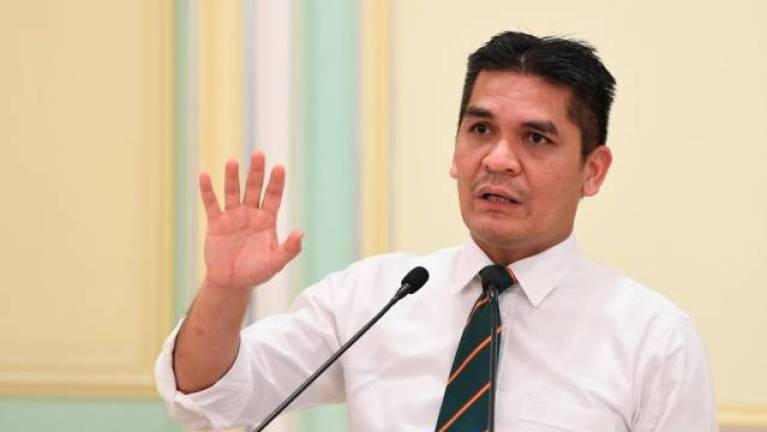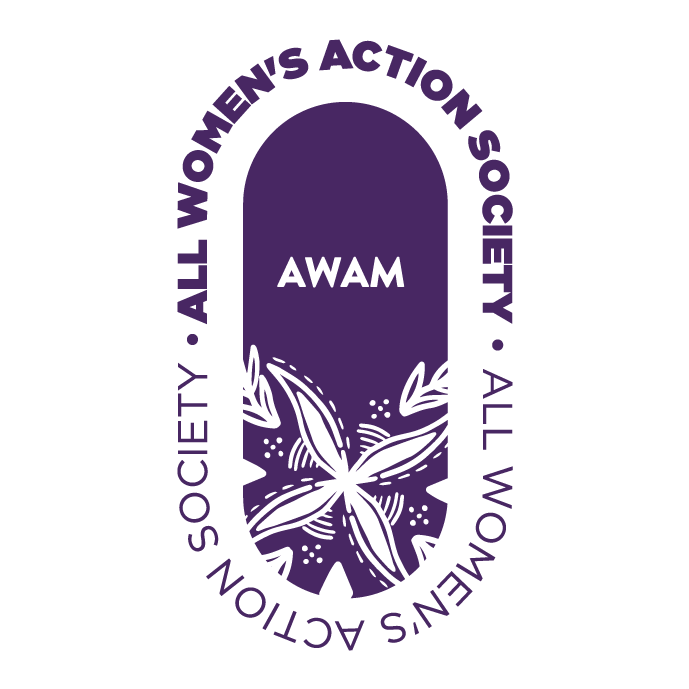
29 APRIL 2021
We, the undersigned, would like to respond to the Minister of Education Datuk Mohd Radzi Md Jidin’s statement on the Ministry of Education’s (MOE) action on period spot checks in schools.
As reported in multiple online media portals on 26 and 27 April 2021, when asked to comment on the practice of period spot checks in schools, Datuk Radzi Jidin said that there was no indication thus far that such a practice existed. MOE has been “drilling until now”, “checking one by one” and asking “all divisions”, but the “answer was no”. The Education Minister also called on the public to “tell (him) at which school, so actions can be taken”.
Whilst we support the MOE’s commitment to look into and address the systemic issue of period spot checks, we would like to emphasise that it is important to implement this commitment whilst taking the complexity of the issue into consideration. The period spot checks, as well as moral policing and the rape jokes, are done routinely by some teachers and even prefects, i.e. figures of authority who have power on their side in each individual school. In any circumstance, whether at school or at the workplace, survivors who have been harassed, sexually or otherwise, find it difficult to come forward for fear of repercussions, especially if their perpetrators are in positions of power. Therefore, it is highly unlikely that the Ministry would obtain such direct feedback from students or teachers sympathetic to the students. It is also doubtful that perpetrators are going to be willing to come forward.
Current survivors are also likely traumatized and will not be in the best frame of mind to come forward with reports. We must not forget that it is figures of authorities here that are the perpetrators and the children’s trust in such figures are likely to be eroded. They are also likely to be suppressed within ecosystems that have indoctrinated its inhabitants with acceptability of period spot checks, body shaming as well as rape culture, and have silenced others who think otherwise. The private nature of the violation and enforcement by a higher authority can thus be impediments for both survivors and perpetrators to come forward.
MOE should always bear in mind that these are degrading and abusive treatments that violate the physical body and personal boundaries without consent. It is made even worse by the fact that most survivors here are or were underaged when these incidents happened. Under the Sexual Offences Against Children Act 2017 and outrage of modesty under Section 354 of the Penal Code, these cases would be considered criminal offences and are punishable by law.
Thus we insist that MOE adopts a more serious and systematic intervention in approaching this issue which would include a fair and comprehensive investigative process. This process should include:
– A whistleblower policy that protects survivors and/or other individuals who provide the MOE with further details about schools and figures of authority that have conducted period spot checks, moral policing and other forms of sexual harassment with public assurance of the MOE of its implementation, and;
– An objective inquiry process into the alleged violations which would include an objective third party such as Suhakam, in order to ensure transparency and accountability.
– The results of the investigations should then be shared with the relevant authorities, including parents, child rights and women’s rights NGOs, which can then be used as a basis for collaborations to form robust policies.
The outcome of the investigations must result in the development and institutionalisation of disciplinary guidelines in schools that clearly spell out zero tolerance of conduct that violate children’s rights and dignity, including period spot checks, sexual harassment and all forms of abuse, bullying and harassment. It must also result in restorative remedies, that will be properly and vigorously enforced in these schools to promote zero tolerance towards harassment, abuse and sexual violations.
Aside from appropriate action against teachers and school authorities, the government working via MOE should look into long term solutions to ensure that schools in Malaysia exist as safe spaces for our children and not dangerous areas where rape jokes are the norm. Long-term solutions must include:
– An improved and enforced existing teachers’ code of conduct in teachers’ colleges or institutions nationally
– A newly revised curriculum for all teachers training institutes to include topics on gender sensitivity so future generation of teachers and educators do not perpetuate the toxic culture of abuse
– Compulsory gender sensitization training among current school authorities and teachers nationally to inculcate fundamental awareness of gender roles, power, physical boundaries and consent
Social inequalities are inextricably linked to educational attainment, whereby experiences of systematic harassment, abuse and violence are linked to poor educational outcomes. To ensure that our children achieve their greatest potential, having a safe environment of learning that actively promotes values of respect of all persons and non-violence is thus crucial. This responsibility should be taken seriously by MOE, in order to fulfil its commitment to provision of quality education for all Malaysian children.
Endorsed by:
Civil society organisations:
1. All Women’s Action Society (AWAM)
2. Association of Women Lawyers (AWL)
3. Bulan Sisters
4. Family Frontiers
5. Justice for Sisters
6. KRYSS Network
7. Perak Women for Women Society (PWW)
8. Persatuan Kesedaran Komuniti Selangor (EMPOWER)
9. Persatuan Sahabat Wanita Selangor (PSWS)
10. Pertubuhan Pembangunan Kendiri Wanita dan Gadis (WOMEN:girls)
11. Sabah Women’s Action-Resource Group (SAWO)
12. Sarawak Women for Women Society (SWWS)
13. Sisters in Islam (SIS)
14. TENAGANITA
15. Tiada.Guru
16. Women’s Aid Organisation (WAO)
17. Women’s Centre for Change (WCC)
18. Agora Society Malaysia
19. Al-Hasan Volunteer Network
20. ALIRAN (Persatuan Aliran Kesedaran Negara)
21. ANAK
22. Architects of Diversity Malaysia
23. Baramkini
24. Beyond Borders Malaysia
25. Biji-Biji Initiative
26. Borneo Komrad
27. Centre for Independent Journalism (CIJ)
28. Community Action Network (CAN)
29. CRIB Foundation
30. Dear Asian Youths KL
31. Edvolution Enterprise
32. Empathy For Youth Academy
33. End CSEC Malaysia
34. ENGAGE
35. ENGENDER Consultancy
36. Federation of Reproductive Health Associations, Malaysia (FRHAM)
37. GDI Malaysia
38. GERAK (Pergerakan Tenaga Akademik Malaysia)
39. Global Shepherds
40. Hakam Youth
41. HumanKind
42. In Between Cultura
43. Jaringan Kampung Orang Asli Semenanjung Malaysia (JKOASM)
44. Johor Yellow Flame (JYF)
45. KauOkTak
46. Lean In
47. Life’s A Stage
48. MAJU Malaysia
49. Malaysian Council of Child Welfare
50. Malaysian Institute for Debate & Public Speaking (MIDP)
51. Malaysian Student Global Alliance (MSGA) Directorate
52. Me.reka
53. MISI: Solidariti
54. Monsters Among Us (MAU)
55. Muslim Professionals Forum
56. Muslim Youth Movement of Malaysia (ABIM)
57. MY Poetry School
58. NCWO
59. North South Initiative
60. Our Journey
61. PATRIOT (Persatuan Patriot Kebangsaan)
62. Pemimpin GSL
63. Persatuan Pengasuh Berdaftar Malaysia
64. Pertubuhan Kebajikan Vivekananda Rembau
65. POWER (Pergerakan Orang Wanita. Empowerment and Revolution)
66. Project ID
67. PS the Children
68. PT Foundation
69. PUAKPayong
70. Pusat KOMAS
71. Pusat Kreatif Kanak-Kanak Tuanku Bainun
72. Refuge For The Refugees
73. Sambal Pod
74. Saya Anak Bangsa Malaysia (SABM)
75. Seek to Speak
76. SERATA
77. SOLS Health-Thrive Well
78. Soroptimist International Kota Kinabalu
79. Speak Up Malaysia
80. Stand Up MY
81. Student Progressive Front UUM
82. SUARAM (Suara Rakyat Malaysia)
83. Teach For Malaysia
84. Teoh Beng Hock Trust for Democracy
85. The KLSCAH Women’s Division
86. The Talisman Project
87. Treat Every Environment Special (TrEES)
88. University Malaya Association of New Youth (UMANY)
89. UNDI18
90. Vanguards4Change
91. Voice of The Children
92. World Vision Malaysia
93. Yayasan Chow Kit
94. Youths.MY
95. YPolitics
Individuals:
96. Dato’ Dr Amar-Singh HSS, Consultant Paediatrician
97. Nalisa Alia Amin

